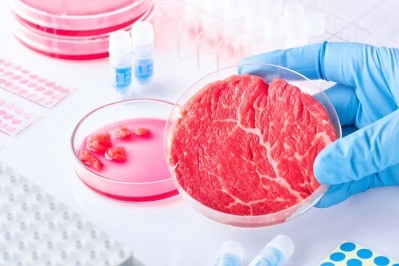Report pushes for more sustainable proteins investment in UK

The report outlines the UK’s successes and failures in the sustainable proteins world, encouraging more investment into public R&D and the creation of a more amenable environment for private investment.
A success story?
The UK has a number of successes under its belt when it comes to sustainable proteins, with a particularly mature plant-based market. In the area of cultivated meat, it has attracted the third most investment behind the US and Israel, with UK companies attracting more private investments in 2022 than the rest of Europe combined.
Overall, the country boasts a range of sustainable protein companies, with 100 in plant-based, 23 in cultivated meat and 15 in fermentation (although the report suggests it may have underestimated the total). UK-based Quorn runs the world’s largest sustainable protein production facility, which is also in the UK.
UK Research and Innovation (UKRI) has also invested £43m (€50m) into research and development for sustainable protein since 2012. This has seen an exponential increase recently, as two thirds of this £43m, around 65%, were invested between January 2022 and May 2023.
The UK has focused heavily on cultivated meat, which received the largest proportion of this funding, at £20m (including the new £12m cultivated meat hub).
However, despite having Europe’s second largest market for plant-based (with £946m spent by UK consumers on plant-based meat and dairy in 2022), it has neglected public research into making plant-based better, according to GFI Europe.
Furthermore, the UK has not developed its precision fermentation scene, which develops animal-free proteins such as egg and dairy proteins from microorganisms like yeast, as successfully as it could, especially when compared with competitors such as the US and Israel.
Lastly, the report suggests that the UK’s potential in fields such as mycology, stem cell biology and bioprocess engineering is not being utilised.
Sustainable protein products are thought to be capable of reducing emissions by up to 92% compared to conventional meat.
Growing the sector
The report has a number of suggestions on how to boost the sector and help the UK compete with the rest of Europe and the world.
To grow the sector, the report suggests that UKRI, the Department for Environment, Food and Rural Affairs (Defra) and the Department for Science, Innovation and Technology (DSIT) should collectively invest £245m between 2025 and 2030 (or £49m annually) into public R&D in plant-based, fermentation-made and cultivated meat, seafood, eggs and dairy. To truly compete internationally, they should invest £390m (£78m annually).
It suggests that Defra and DSIT should review sustainable protein infrastructure, ascertaining how to de-risk private investment.
It also states that the Food Standards Agency (FSA) should focus on making regulations more amenable for novel foods. Furthermore, the Chancellor of the Exchequer should give it a one-off £30m in the 2023 Autumn Statement, and the next Comprehensive Spending Review should ensure its budget continues grows in real terms.
And it calls for the removal of restrictions on dairy terminology (on words relating to dairy products, such as ‘cheese’ and ‘milk’) existing in leftover EU laws in order to communicate well with consumers.
Finally, it suggests the government uses the upcoming Engineering Biology Action Plan, which will call for engineers in biology to provide evidence into the strengths, weaknesses and opportunities of the UK’s biology engineering in order to inform policy, to cement its support for upscaling the sustainable protein sector.
These changes, the report suggests, could have significant benefits for the UK. For example, a Green Alliance analysis predicts that with the right investment, the sustainable protein sector could create 25,000 jobs in the UK by 2035, adding £6.4bn to the economy.
“The UK is home to dynamic food producers, world-leading scientists and a strong plant-based market – all the tools needed to build a globally competitive sustainable protein industry capable of reducing emissions, creating green jobs and making the country less reliant on imports,” said Linus Pardoe, UK policy manager at GFI Europe.
“The government promised to keep the UK at the forefront of this growing sector in last year’s food strategy, but it must act now to deliver on that ambition, including investing £390 million in research and giving the Food Standards Agency the resources it urgently needs. Failing to act risks the UK missing out on economic and environmental benefits as other countries race ahead.”















